Brain Awareness Week
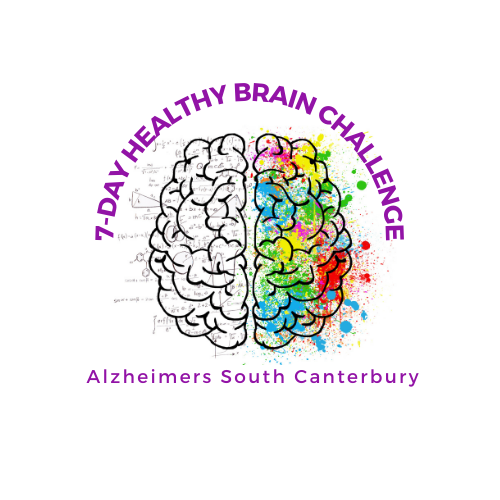
Introduction
Research shows by making a few lifestyle changes, you can help to reduce the chances of developing dementia. Exercising the brain can slow the thinking and functional decline of people with Dementia. These activities will also help you to live well with a diagnosis of dementia.
March is Brain Awareness Month, here is your chance to put into practice some healthy habits.
Alzheimers South Canterbury dare you to participate in our 7-day Healthy Brain Challenge. Complete each day’s tasks posted on our Facebook Page
(5) Alzheimers South Canterbury | Facebook
Tag a different friend each day on your post when you complete that days challenge to join in the 7-day challenge. If they choose to accept the challenge in supporting the awareness of Dementia, they must start from day one and tag a friend each day also.
This challenge will help bring awareness of Dementia in our region
26% of South Canterbury’s population are aged over 65 compared with 14.3% of the total New Zealand’s Population.
There were an estimated 62,287 people in New Zealand who had dementia in 2016
It is projected that by 2050 there will be 170,212 people in New Zealand with dementia
Alzheimers South Canterbury receive around 12 new referrals per month and as our ageing population grows there will also be in increase in the number of referrals.
Please get in contact with us if you know someone with Dementia.
Before you start, we would recommend talking to your doctor particularly if you have any health conditions
You can complete them on your own from our website, or join the Facebook challenge and complete it there while helping share Dementia Awareness.
DAY 1
Challenge Your Brain
Keeping our brains active is all about generating little ‘mental sweat’, helping our brain to build new cells and strengthen the connections between them. Generating mental sweat can and should be fun.
Today’s Challenge: Send us a message to our Facebook page with your answers to the following word riddle and in the comments below this challenge on Facebook tag a friend to get them to join in the 7-day challenge.
Word Scramble:
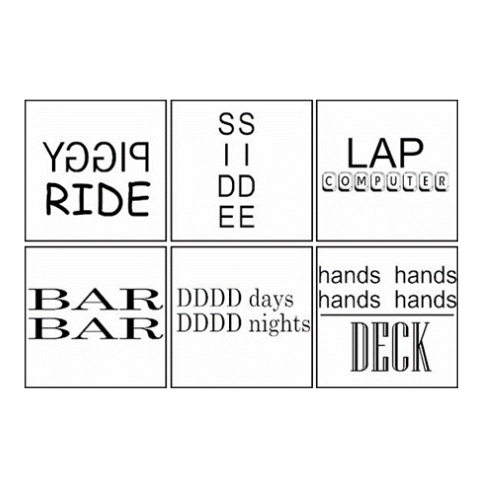
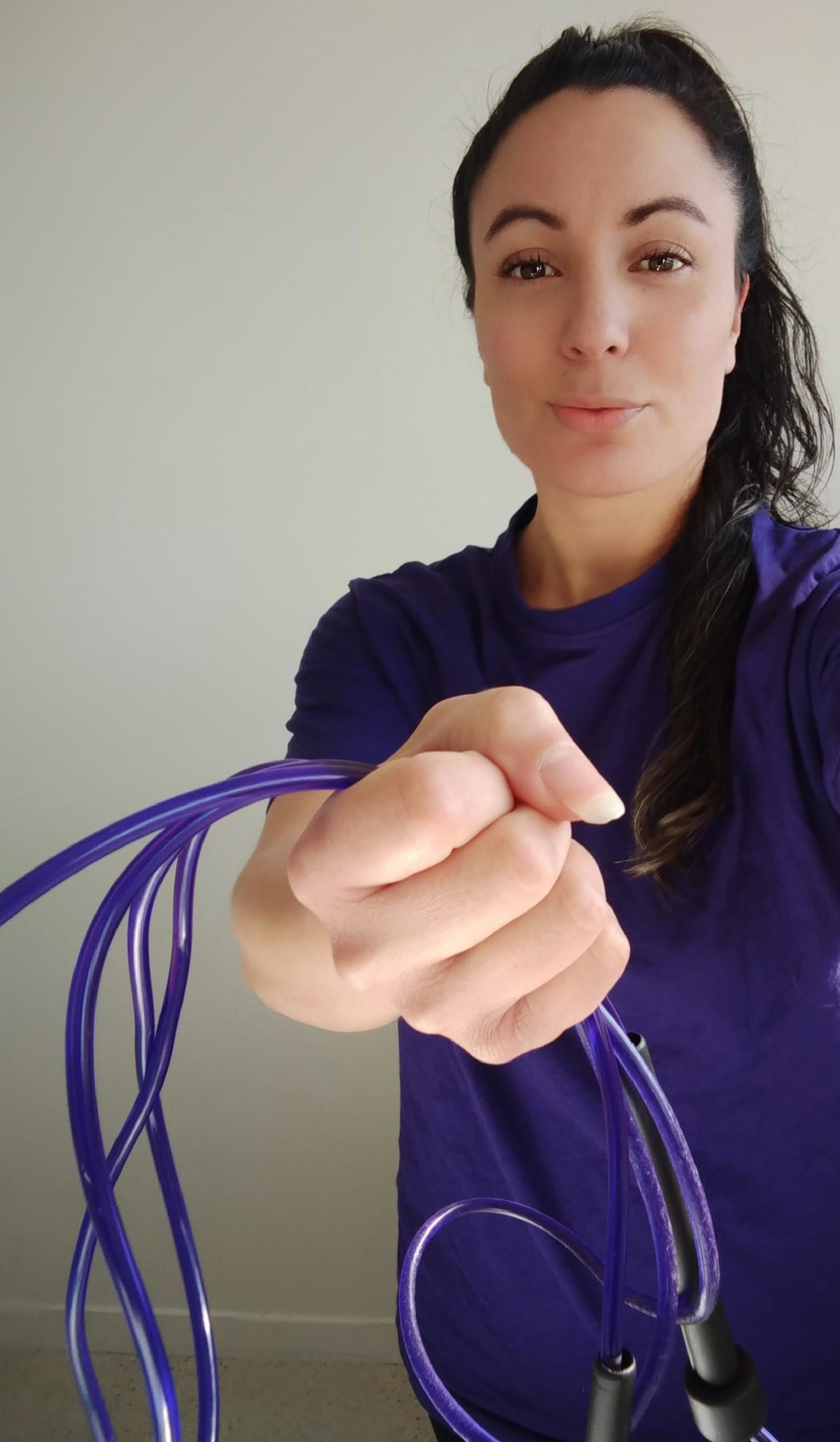
DAY 2
Get Active
Physical activity helps our general fitness, muscle control and coordination, and makes us feel good. The most important thing is to choose activities you enjoy and stick with them.
Remember to always warm up and cool down. Listen to your body. Start with shorter sessions and work your way up. And if at anytime you feel sick or you begin to hurt stop the activity and ask your doctor for advice.
Getting active does not stop at traditional sports or exercises. Just keep it fun and interesting and switch it up.
Today’s Challenge: take a walk to your favourite place. Post a photo of your favourite place in the comments below this challenge on Facebook and tag a different friend to join the 7-day challenge.
DAY 3
Eat Well
- Food is fuel for our brain and body. So to keep it functioning as well as it can, we need to be eating a healthy, balanced diet. This means we should:
- Eat lots of foods rich in fiber to fill us up.
- Eats lots of unprocessed plant foods.
- Get plenty of Fruit and vegetable servings (5 servings of vegetables and 2 servings of fruit each day)
- Cut back on red meat and have fish twice a week.
- Keep fried, processed, fatty and sugary foods as an occasional treat.
- Drink plenty of water and only have alcohol in moderation.
Today’s challenge: try one of these easy Mediterranean recipes from the link below and post a photo of your meal in the comments below the challenge on Facebook then tag a friend to join the challenge.
DAY 4
Stay connected
Population based research indicates that people who are more socially active have a reduced risk of dementia, while people who are socially isolated have an increased risk.
Social activity might influence dementia risk because:
- Socialising is a form of cognitive exercise, as conversations and social interactions involve multiple cognitive functions ((e.g. memory, planning)
- Social withdrawal may be an early symptom of an undetected neurodegenerative condition.
Spend time with friends and whanau, and if you can, make time to meet new people too. Think of an activity you enjoy and see if you can join a group in your community or give up some time as a volunteer.
Today’s challenge invite a friend or someone (perhaps an aged person) for a cup of tea or coffee or take them out for coffee post your photo with them in the comments below this challenge on Facebook and tag a friend to join the 7-day challenge.
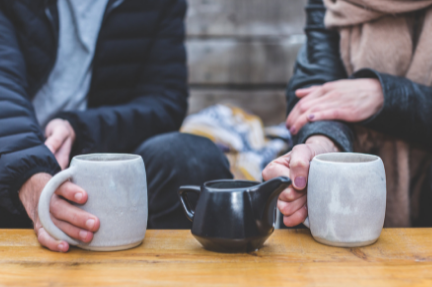
DAY 5
Look after your heart
What is good for the heart is good for the brain, so look after it! Adopting a heart healthy lifestyle will not only help to reduce your chances of developing dementia, it will also help cut your risk of developing high cholesterol and high blood pressure, diabetes and obesity as well as heart attacks and strokes.
For good heart health:
- Do not smoke.
- Keep cholesterol and blood pressure under control.
- Stay active and eating a balanced diet to maintain a healthy weight.
- Limit alcohol consumption to two standard drinks on each drinking occasion.’
Attach link to: https://www.healthnavigator.org.nz/health-a-z/h/heart-risk-assessment/
Today’s challenge paint/draw a heart on a rock go for a walk and place the rock somewhere for someone else to find. Post a photo of your rock in the comments below and tag a different friend to join the 7-day challenge. Let us know if you find someone else’s heart rock.
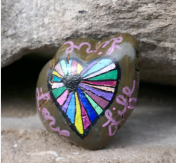
DAY 6
Music Therapy
Music therapy is a research-based practice and profession in which music is used to actively support people as they strive to improve their health, functioning and well-being.
Music Therapy is commonly used as an intervention for people living with dementia to reduce agitated behaviour and improve communication.
In the absence of a Music Therapist, you can still successfully incorporate music activities into your activity programs. Regular music sessions with familiar music is a wonderful way to positively influence mood and behaviour.
Music Therapy for Dementia
Music lights up the entire brain. Music Therapy can give people with dementia a break from confusion and fear. Some people can no longer remember their loved ones, but they still know all the words to their favourite songs.
Music Therapy may even in some instances provide relief from pain and help people recover lost memories.
Who can Benefit from an Individual Music Activity Session?
Everyone can benefit from music activities! Regardless of genre, listening to music of your preference releases endorphins in the brain and may reduce anxiety, relieve depression and boost the immune system among other benefits.
You may offer individual music sessions to:
- Physically frail elderly clients who are functionally dependent
- People living with dementia or Alzheimer’s Disease.
- People with Aphasia and Agnosia disorders
- People with perceived or real lack of autonomy
- People living with chronic illnesses: cancer, heart disease, arthritis, Parkinson’s.
- People suffering from stress, anxiety, and/or depression.
The Objectives of a Music Activity Session
- Improve social behaviour.
- Enhance communication.
- Entertain and comfort.
- Alleviate isolation and withdrawal.
- Diminish agitation.
- Awaken special memories associated with happy phases of life.
- Improve mood.
- Soothe feelings of sadness and sorrow (which may be felt deeply but unexpressed)
Types of Music Activity Sessions
Music sessions can be Receptive or Active.
Receptive sessions are when the individual listens to live or recorded music of his/her preference.
Active sessions are when the individual participates by singing or playing a melodic or rhythmic musical instrument; or both.
It is important to keep in mind that music triggers emotions from the past and that responses to these emotions can be good and sometimes painful. Be prepared to support, empathize and console people with sorrowful responses.
How to Run an Individual Music Session
A music session should evoke memories and create meaningful experiences for the individual. It should engage people emotionally, bring joy and validate feelings.
Here are some tips for getting the most out of an Individual Music Activity:
- The location of the session should be familiar to the person; their bedroom is often ideal for an undisturbed and serene setting.
- Use ‘live’ music if you have the resources. Various musical instruments can be used: flute, portable keyboard, ukulele, violin, or accordion.
- If using recorded music, it should be chosen according to the individual’s preferences.
- Start session by asking the person which song she/he would like to hear.
- Try to engage the person by asking them what the song reminds them of. The resident should be encouraged to reminisce and sing-along with you.
- Sing the song and leave a few words at the end for the client to finish.
- If the person has difficulty singing, try humming or la-laing.
- The duration of an individual music session should be around 30 minutes long as a rule of thumb (more if response is positive).
- Run sessions once a week or more, depending on time available.
- At the end of each session take notes and report your observations in your Progress Notes.
Other Useful Tips:
- If your client is unwell, offer to make a mixed CD with their favourite songs to listen to when you are not around. You can find music online and songs are not expensive, some as little as $1 dollar each. This can be a powerful gift for someone who has little time left. Ipods with personalized playlists are also a wonderful investment.
- If interaction is not possible due to medical diagnosis use to the same process of talking to the resident and explaining what you are playing next. You may be surprised at the shift in alertness and eye contact in some clients when the music is heard. If you get that sort of reaction you have achieved one of your goals.
- If you work with residents from a non-English background you may use folkloric music from their country. Hum the melody and observe resident’s response.
Individual Music Activities for people living with Alzheimer’s.
Even those living with advanced stages of dementia benefit from singing sessions. A singing session is engaging and simple to run. According to several studies, when spoken language does not seem to reach a person, music can function as a go-between by activating memory and emotions.
- You may start the session with “Let’s reminisce together!” and proceed to sing a well-known song from yesteryear.
- When music preferences cannot be established, choose popular music from the time the individual was between 15 to 35 years old.
- Offer props as necessary: drums, maracas, cymbals, rhythm sticks, recorder, and keyboard; also use photos, posters, magazines.
- Keep on singing/playing music and wait patiently for a response. If no response is received don’t assume it didn’t work; come back the following week and try again.
- Share the session with the individual’s relatives if appropriate.
- After each song, observe individuals.
- Alertness,
- Eye contact
- Smiles
- Nuances in body language
- Mood changes
- Engagement with activity director/family
- Duration of sessions should be approximately half an hour.
- Take notes and report your observations in your Progress Notes.
Resource link: https://www.goldencarers.com/how-to-plan-music-activities-for-dementia-care/3192/
Today’s Challenge… time to be brave and post in the comments below this challenge on Facebook a 30sec video or an audio recording of you singing or dancing to your favourite music. And make sure you tag a new friend as well to join the 7-day challenge. No judging or negative comments allowed. Please support one another by lifting each other up with encouraging words
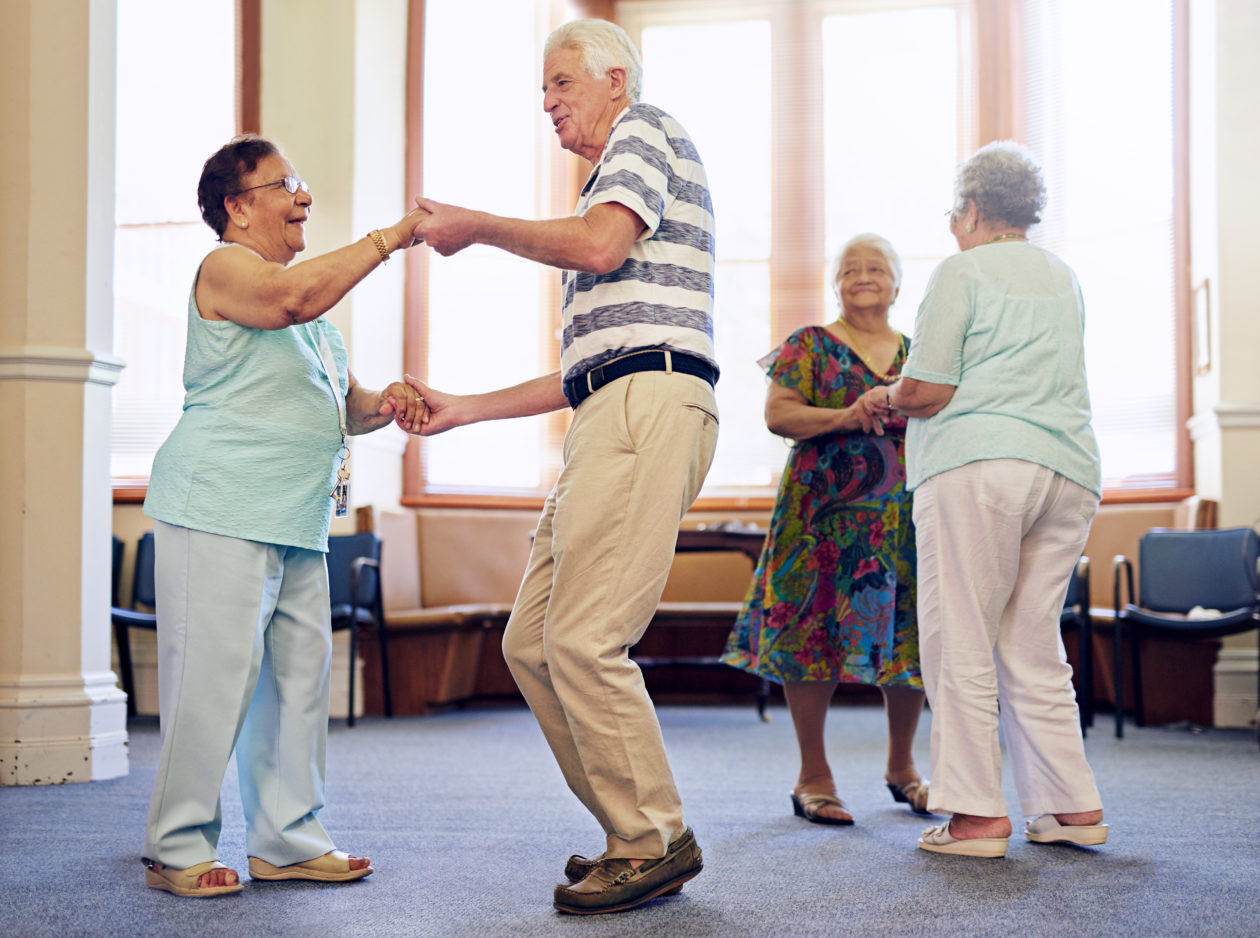
DAY 7
Get Creative
Art projects are a fun, relaxing way to help senior parents express their creativity, but they are particularly valuable for seniors with dementia. Art therapy can create a sense of accomplishment and purpose for elderly artists, while also providing them an opportunity to express themselves in a nonverbal way. Most importantly, art therapy for dementia is a powerful tool as it stimulates the brain, stirring dormant memories and sometimes bringing language back to struggling seniors. Studies have shown that art therapy activities even helped boost cognitive function in various areas of the brain.
Resource link:
https://dailycaring.com/the-benefits-of-art-therapy-for-dementia/
Today’s final Challenge is inspired by Dr. Temple Grandi How does your brain work art activity. Complete the activity steps below and in the comments below post a photo of your art and then tag a friend to join the 7-day brain challenge.
Here is how to do the art brain activity:
1.get a copy of the pdf template what’s going on in your mind.pdf – Google Drive and print it out or draw your own
2. Chose words that you want to think about.(e.g. my 5-year-old son loves superheroes, and thinks of spiderman, I am thinking about my mum because its mother’s day coming up so words to do with love and motherhood)
3. Write the words in the word bubble.
4. Then, draw all the images/thoughts/feelings that come up when you think of that word.
Here’s the resource link:
http://www.pinkstripeysocks.com/2017/12/how-brains-work-art-kids-activity-temple-grandin.html
Thank you for helping support our loved ones who are living with Dementia. You are amazing we appreciate and value your aroha.

